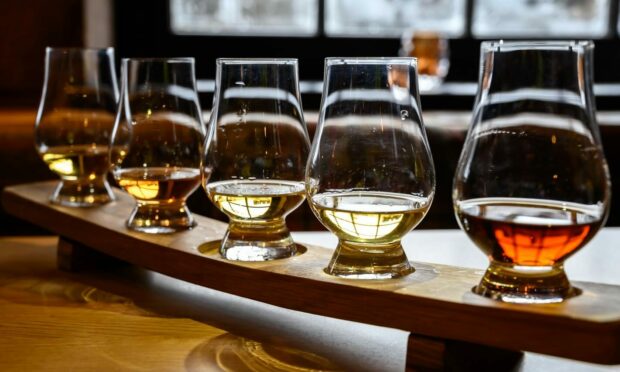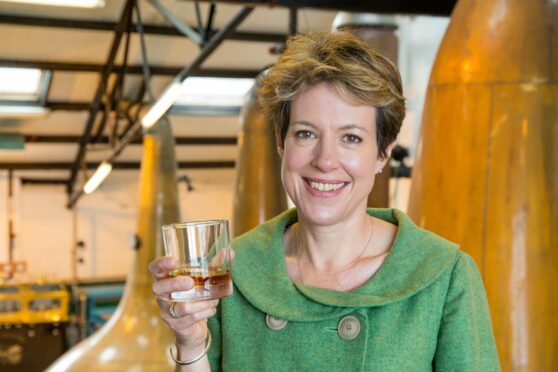A cut in duty on alcohol to keep the cost of living lower was welcomed by the trade body for the Scottish whisky industry although it raised concerns it was still being taxed more than other drinks makers.
The Chancellor of the Exchequer Rishi Sunak unveiled a series of reforms to alcohol taxes from February 2023 – including a 5% cut in duty on draught products to help support pubs.
There were duty cuts for cider and beer and a reduction for sparkling wines such as Champagne and prosecco – “no longer the preserve of wealthy elites” –bringing it in line with still wine, ending an “irrational” 28% duty premium.
The Scotch Whisky Association (SWA) has welcomed the duty freeze announced in the autumn budget.
Scotland’s drink
Highlighting that 92% of spirits produced in the UK come from Scotland, Karen Betts, the SWA’s chief executive, said the freeze showed the UK government wants to “support one of Scotland’s most important industries”.
However she said spirits were still taxed more than beer and wine and that the organisation would look at the proposed reforms to determine if distilleries had to continue to operate at a “competitive disadvantage” to other alcoholic drinks producers.
She said: “By freezing duty, the Chancellor given welcome relief to all distillers, specifically in Scotland where 92% of all UK spirits are produced or bottled.
“It’s confirmation that the UK government wants to support one of Scotland’s most important industries and will take action to protect jobs, investment and exports, and to bolster the recovery in hospitality and tourism.
“But the UK government must go further if it’s to meet its promise to ensure the tax system is supporting Scotch Whisky.
“Despite the duty freeze, spirits are still taxed more than beer, wine and cider and we will now want to scrutinise the reform proposals announced by the Chancellor today.”
Still at a disadvantage
She added: “At first glance, appears that Scotch whisky will continue to be put at a competitive disadvantage against beer and cider through the tax system, rather being allowed to compete on a level playing field.”
In the budget statement, the Chancellor confirmed that all duty rates on alcohol would remain unchanged.
The duty rate on spirits continues to be £28.74 per litre of pure alcohol, meaning that of the £15.01 average price of a bottle of Scotch Whisky, £10.55 is collected in taxation through duty and VAT. The tax burden on the averaged priced bottle of Scotch Whisky is 70%.
SWA said spirits, including Scotch whisky, continue to be taxed more per unit of alcohol than beer, cider and wine.
In a statement, SWA said: “In the UK, Scotch Whisky is taxed at a higher rate per unit of alcohol than any other category and faces the highest duty rate among G7 nations.
“This remains the case, with consumers paying more in tax to enjoy a cocktail than a pint of beer or a glass of wine.
“The industry will study the detail of the reform proposals announced by the Chancellor and campaign to ensure that reforms fulfil the commitment made by the UK government to “ensure the tax system is supporting Scotch Whisky”.
The biggest cut
Mr Sunak pledged the “biggest cut to cider duty since 1923, the biggest cut to fruit ciders in a generation, the biggest cut to beer duty for 50 years”.
The Office for Budget Responsibility (OBR) economic and fiscal outlook published alongside the budget and spending review showed alcohol tax revenues would decline by £100million each of the tax years between 2022 and 2025.

